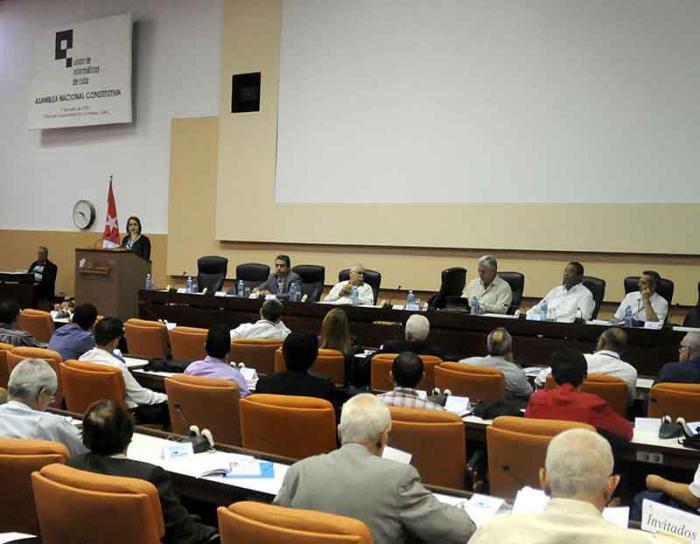
Creating a flexible, well connected organization, committed to its time, and to playing an active role in the country’s development, above all, able to bring together information technology and communications (ICT) professionals affiliated with the state and self employed sector, are priorities for the Union of Computer Scientists (UIC), a professional non-profit organization founded this past Monday, March 7 at the Havana Convention Center.
Referring to the general principles which will guide the organization’s work – which currently has 6,000 members – recently elected UIC President, Ailyn Febles Estrada, noted that the group aims to bring together all relevant actors and entities in a space to share knowledge, experience and ideas, and thus contribute to the digitalization of Cuban society.
Participating in the UIC’s National Constitutive Assembly were Miguel Díaz-Canel Bermúdez, a member of the Communist Party of Cuba (PCC) Political Bureau, and first vice president of the Councils of State and Ministers, as well as Jorge Cuevas Ramos, a member of the PCC Central Committee Secretariat and Maimir Mesa Ramos, minister of Communications.
The need to develop a culture of responsible and safe use of the internet; provide tools to fully exploit the country’s ICT potential, promote professional development in specialized fields; as well as create means and infrastructure so that young people feel involved in the socio-economic and policy changes underway in the country - with the opportunity to express their concerns and interests - were topics addressed in a discussion raised by delegates to the Strategic Projection commission.
In regards to making innovative creations and technology available to society, Iván Barreto, director of Cinesoft (Computer Sciences and Audiovisual Media Entity affiliated with the Ministry of Education), noted the example of the website Cubaeduca, an interactive and dynamic communication platform which allows users to access specific content related to the national education system.
Workers from the self employed sector, such as Liber Puente, stressed the need for the UIC to recognize computer scientists who may not be affiliated with state institutions, but also provide essential services to Cuban society and the economy.
During the event’s closure, Cuba’s first vice president highlighted the importance of the UIC in a world in which outside influences are attempting to impose an ideological media war, while other nations use their computer technology to harm poorer countries.
“We are participating in a founding event which will become a paradigm for contributions to managing knowledge, culture, mastering and applying the latest technologies, and driving forward the digitalization, automation and cyber security of the country, all of which will be consolidated and perfected through the participation of Cuban professionals and technicians trained by the Revolution, and represented here in this Union,” he stated.















